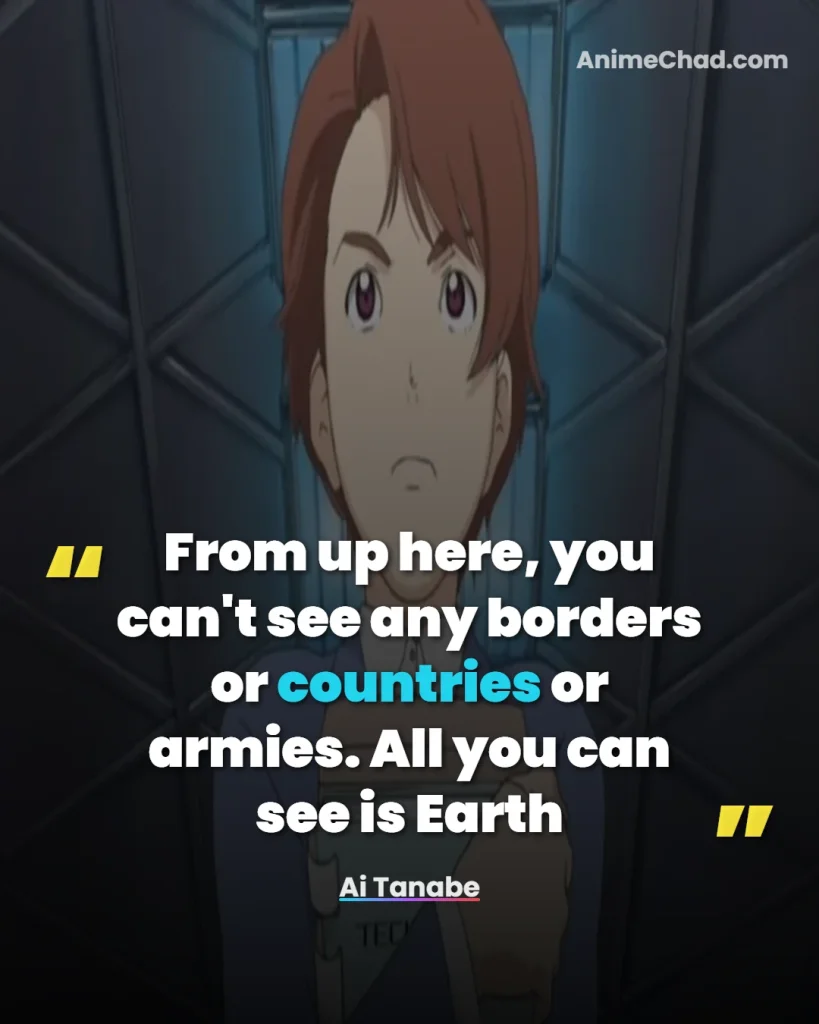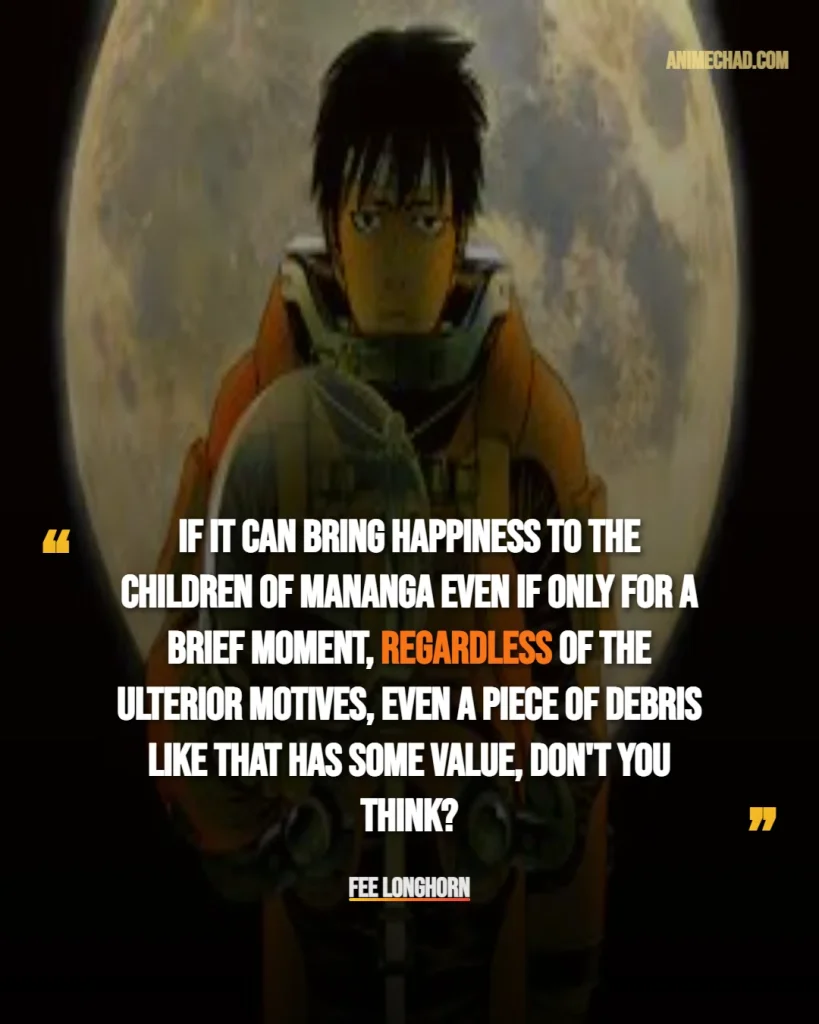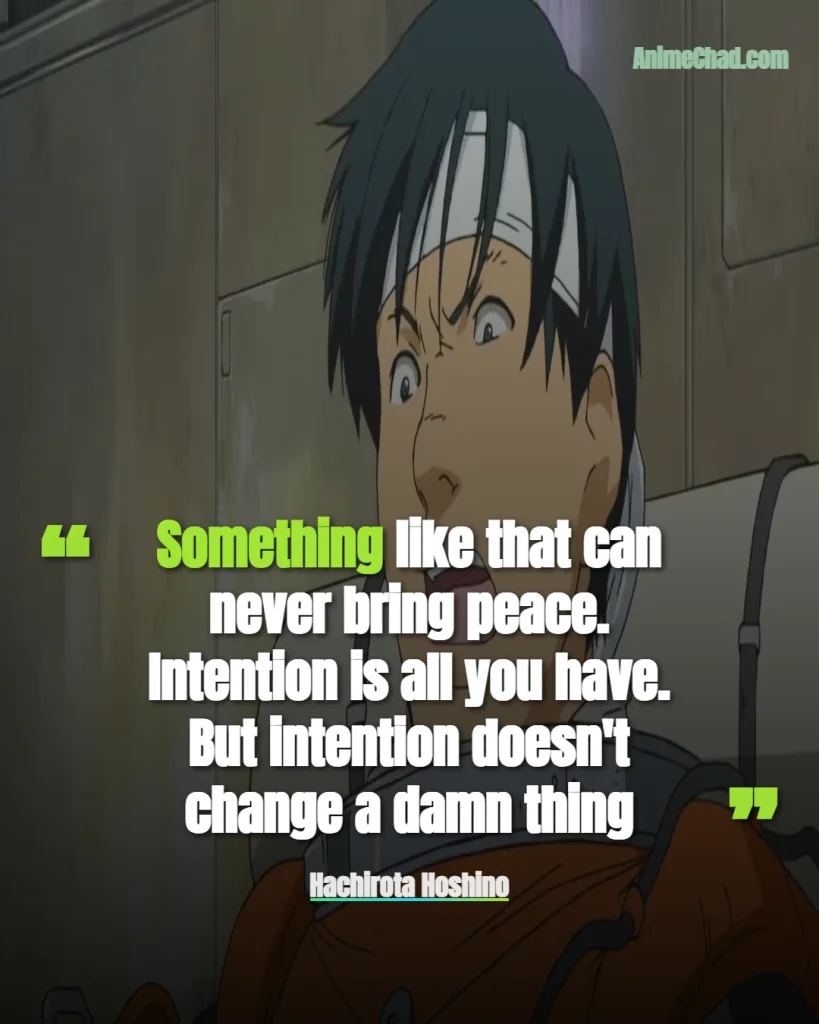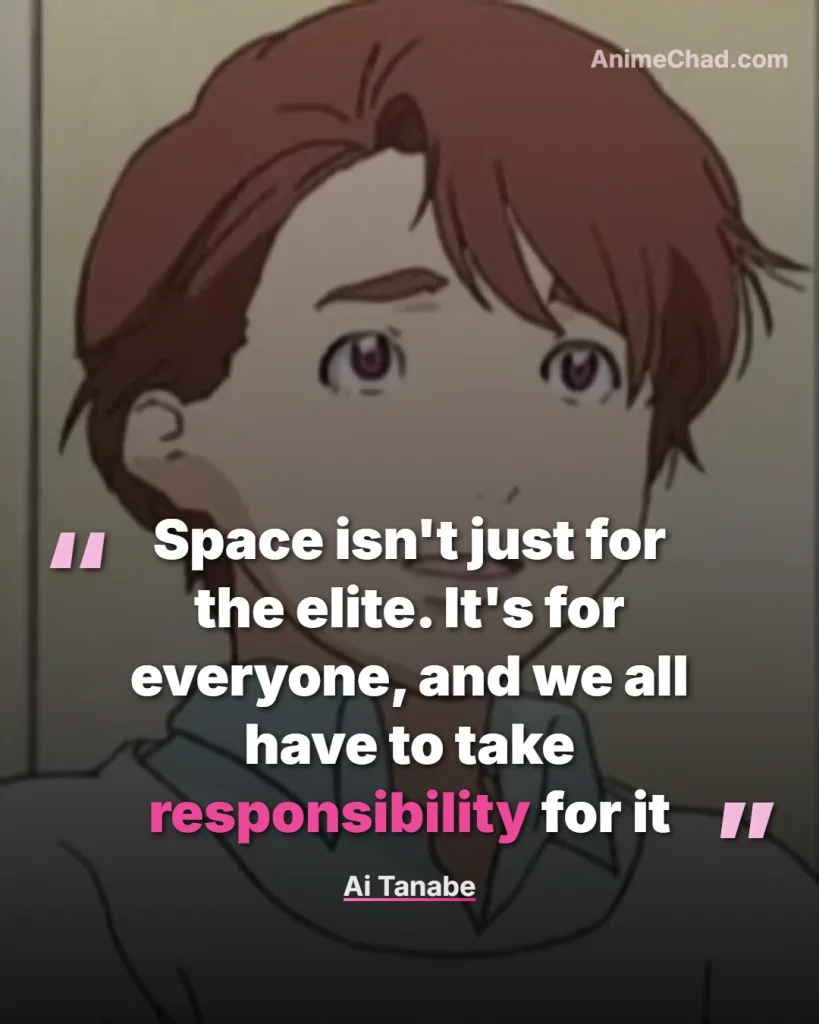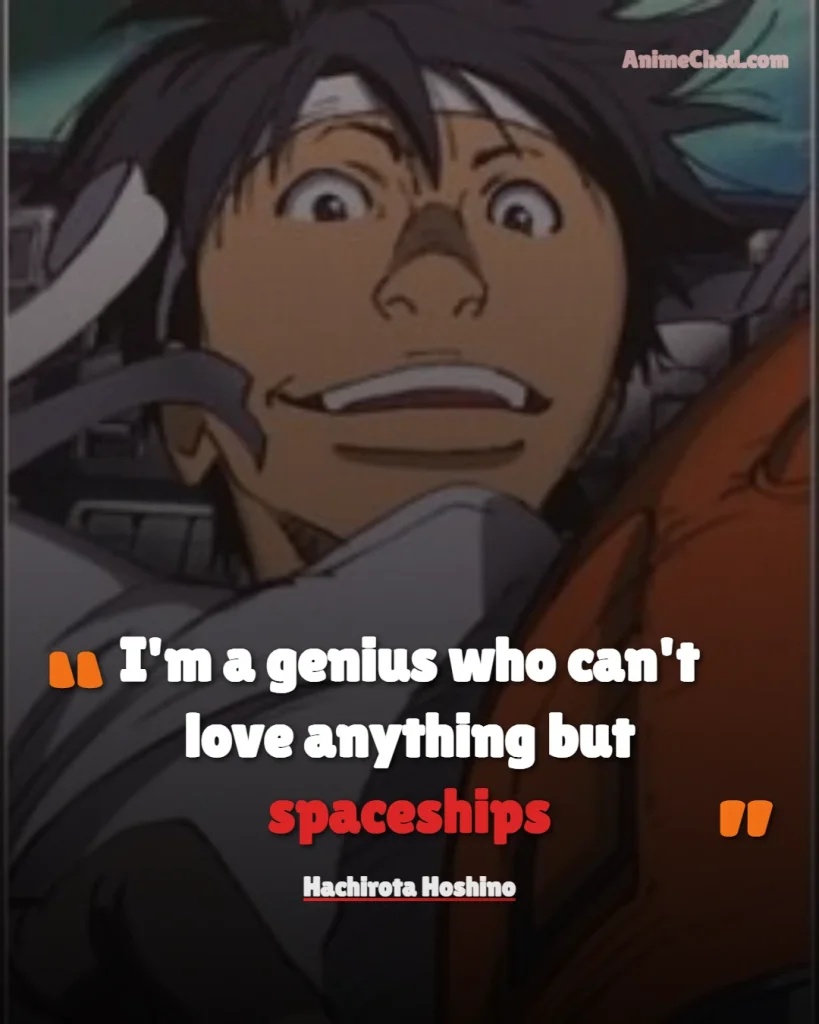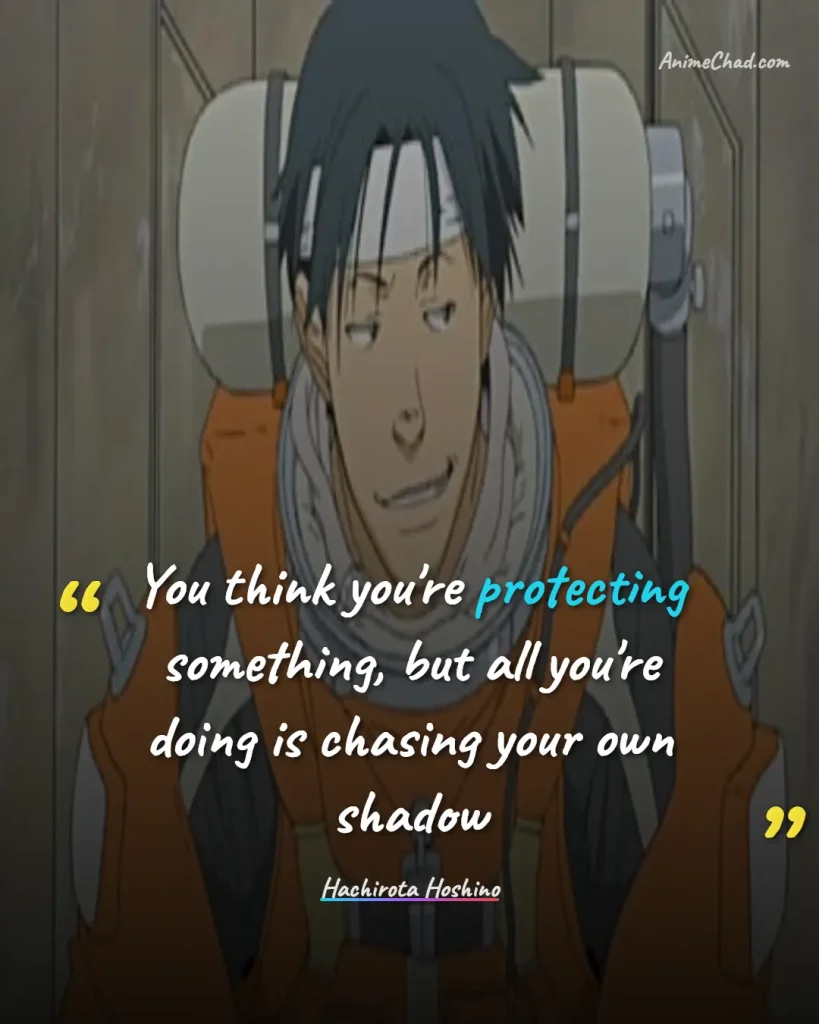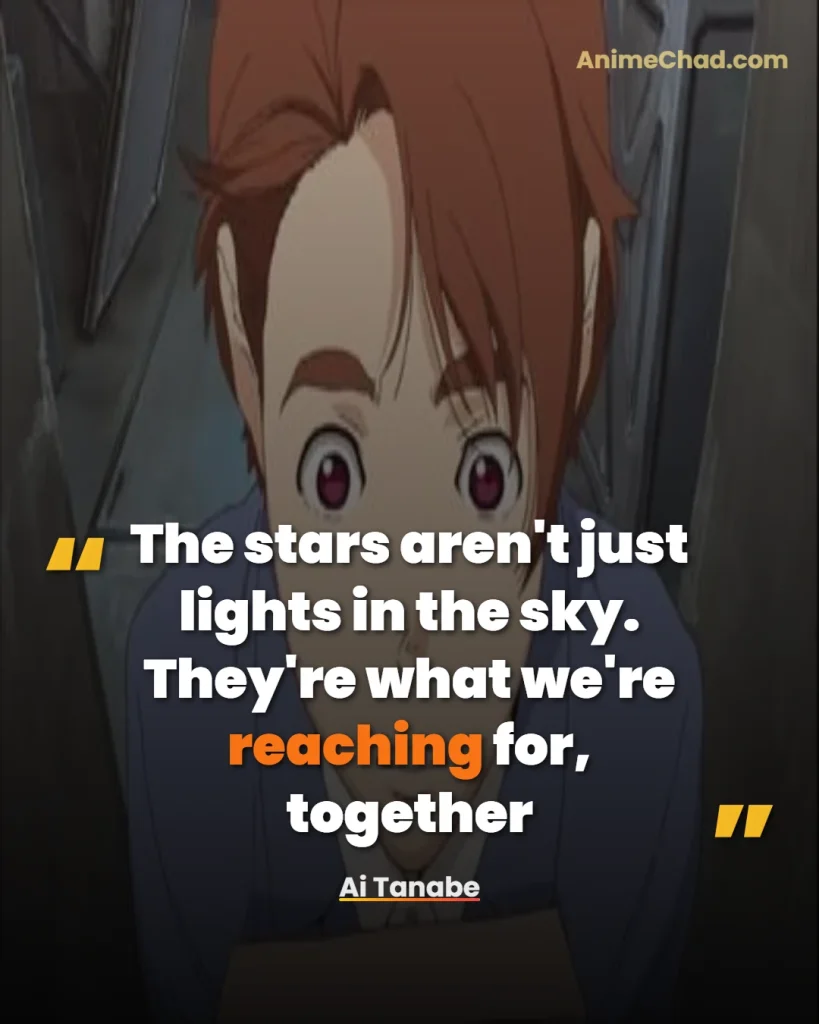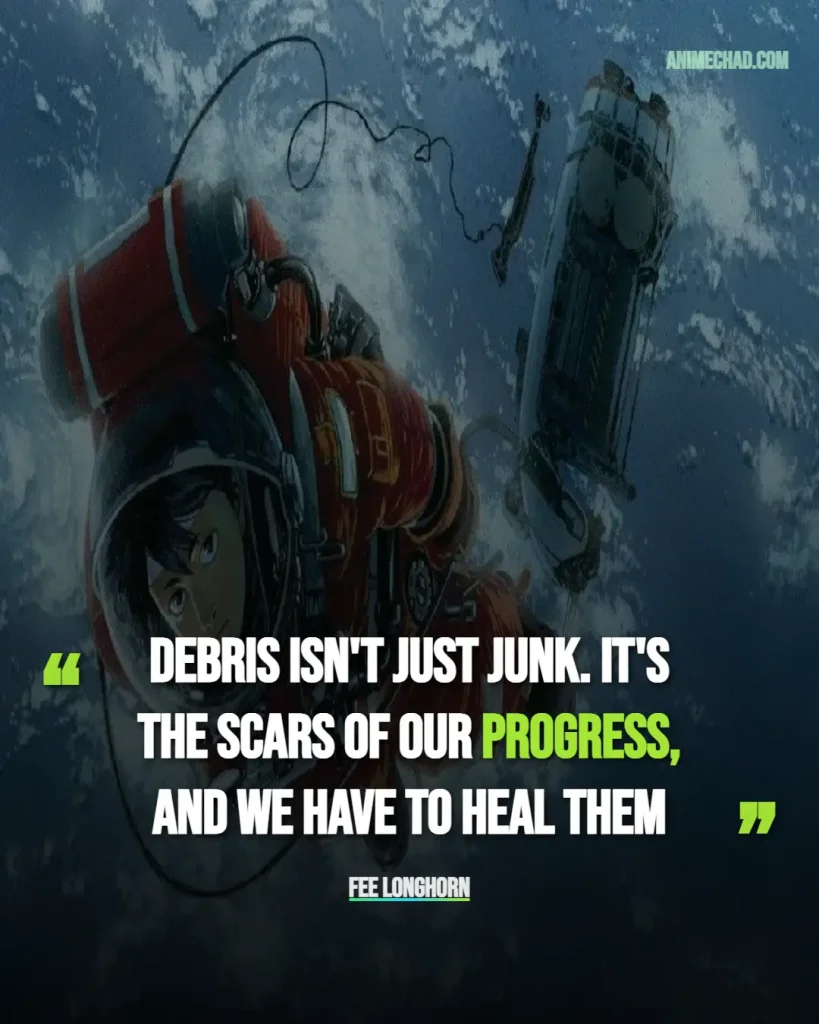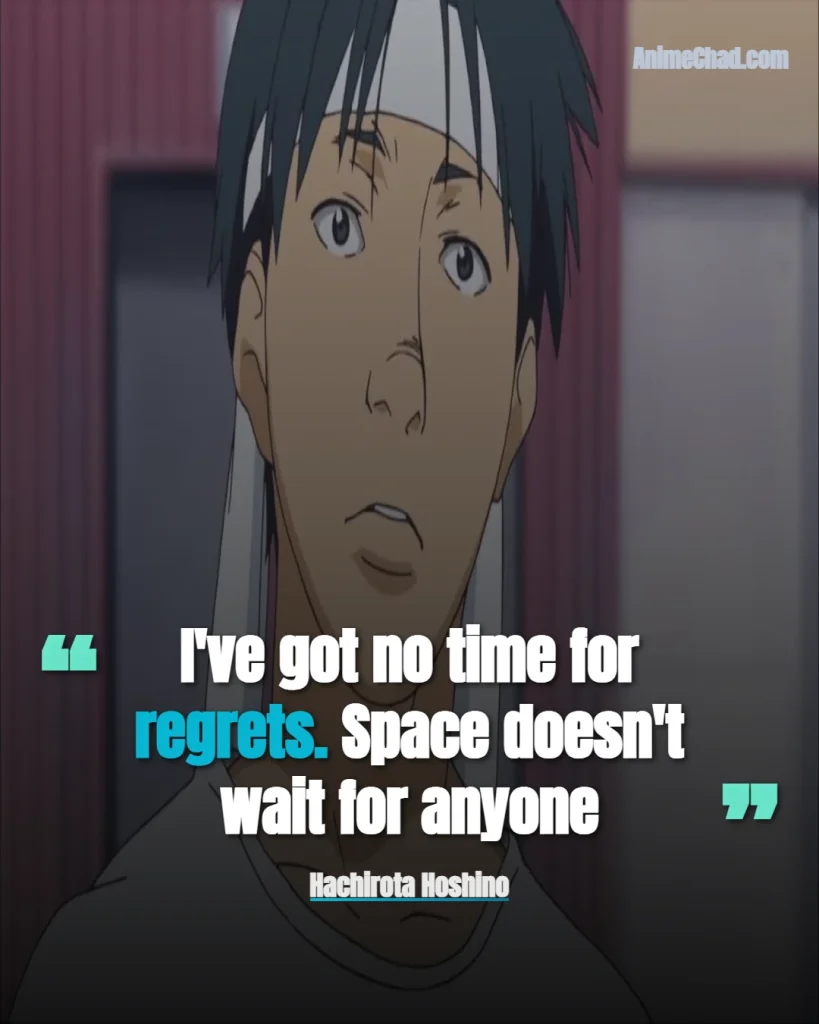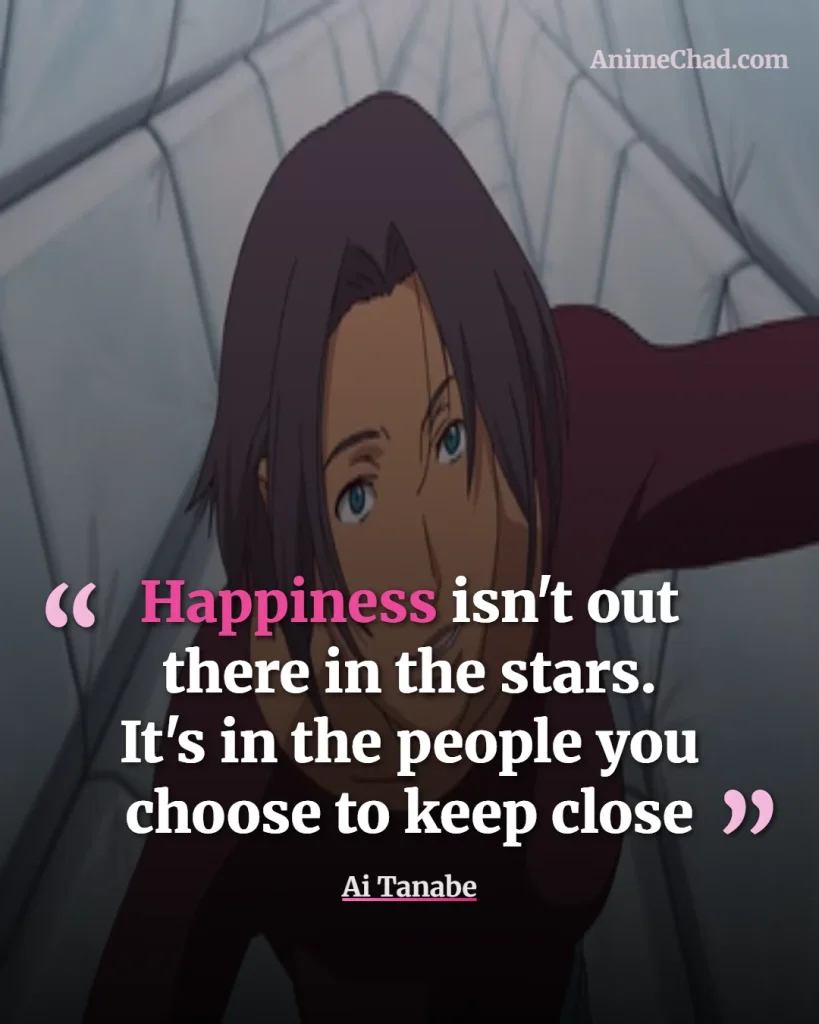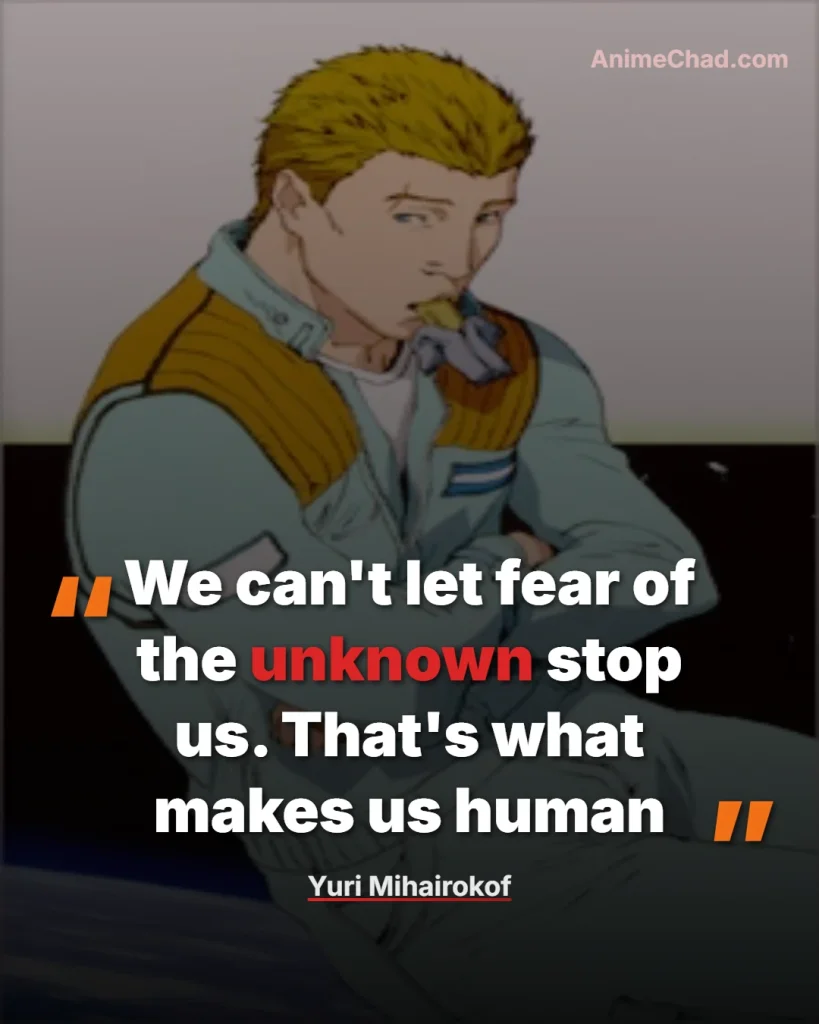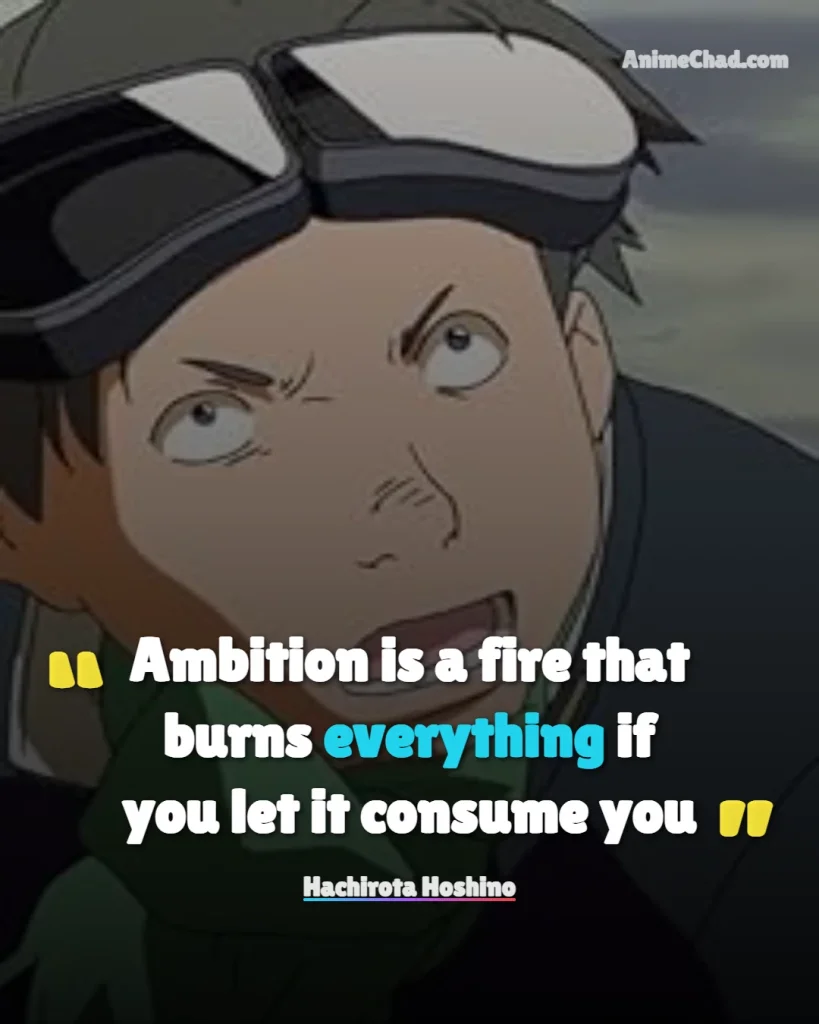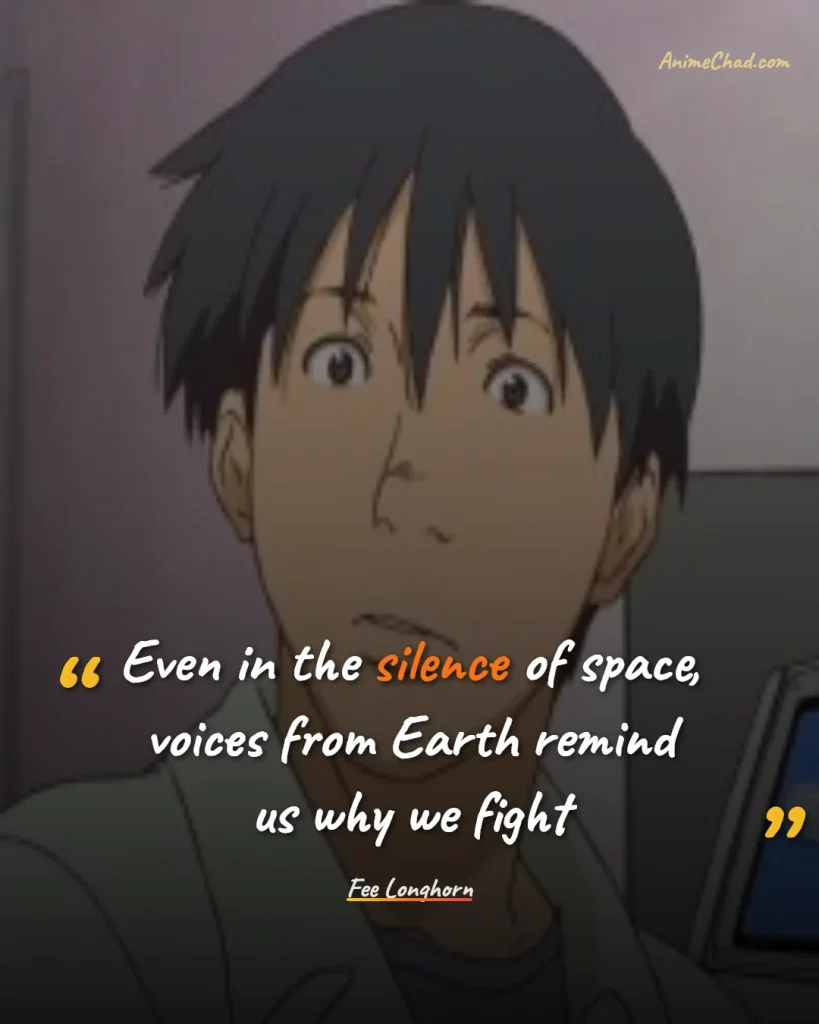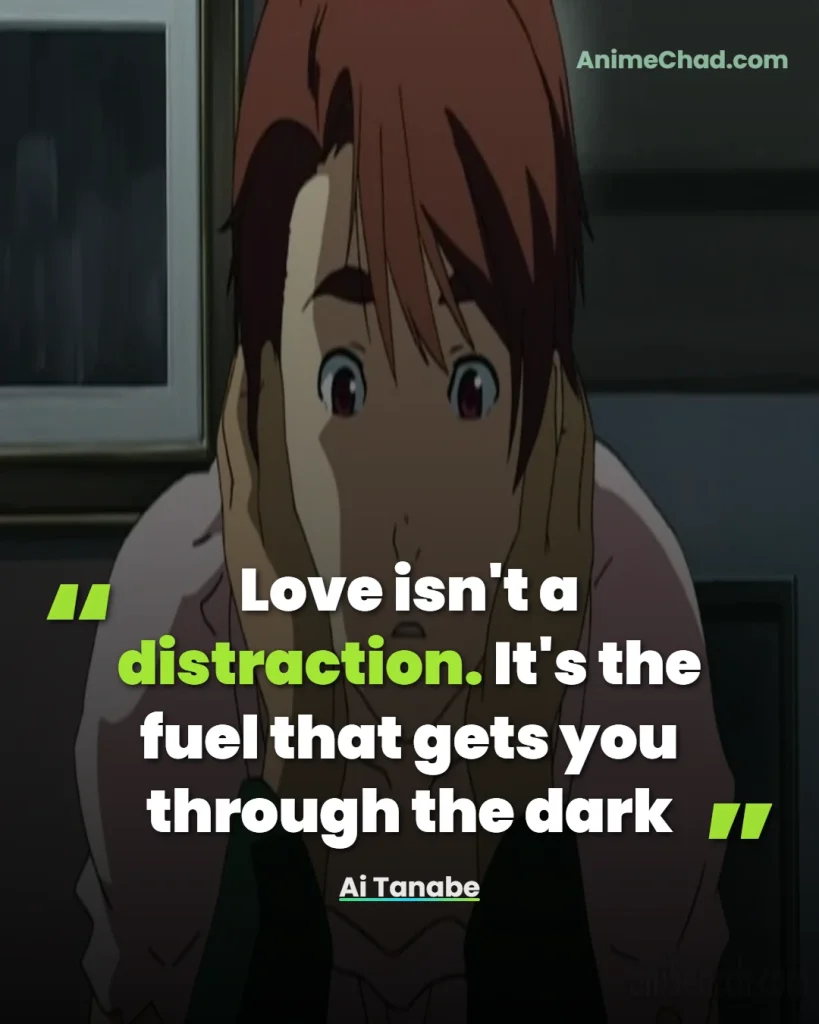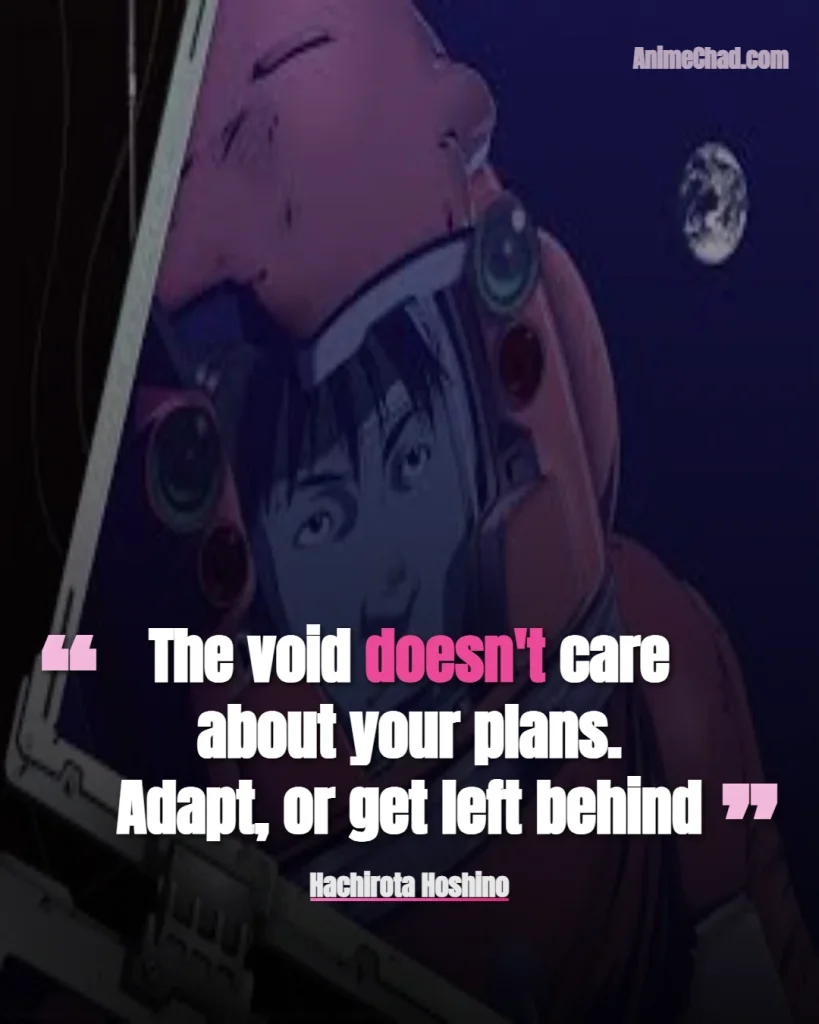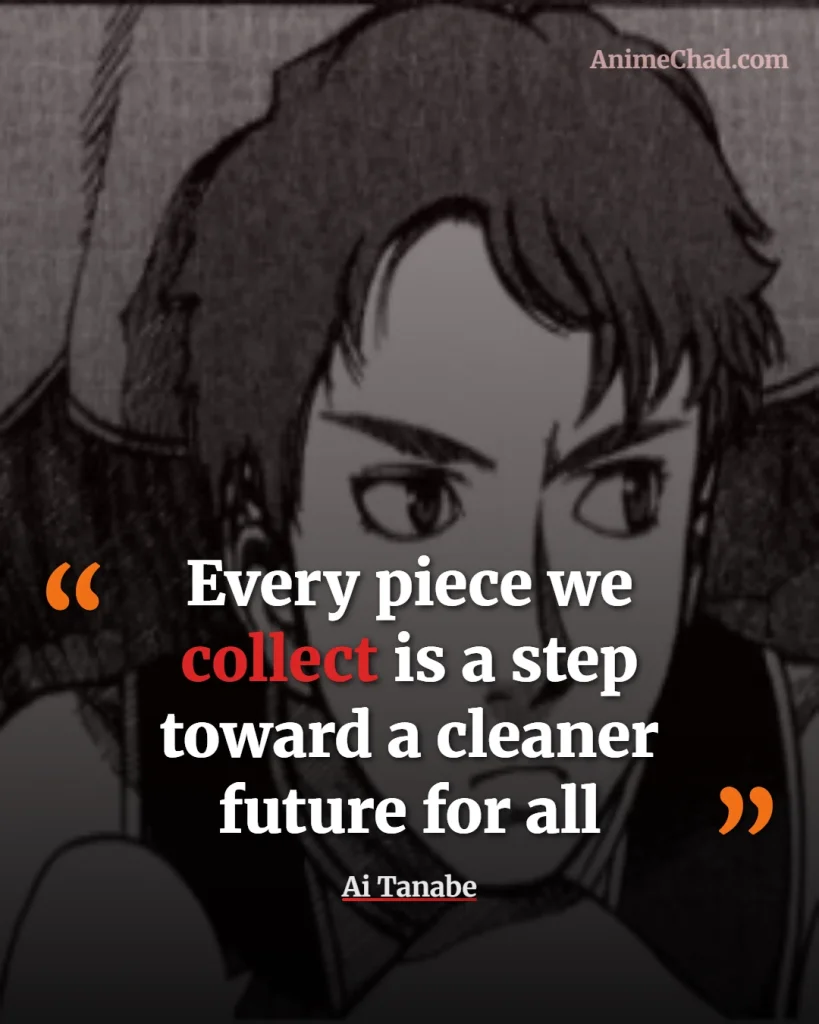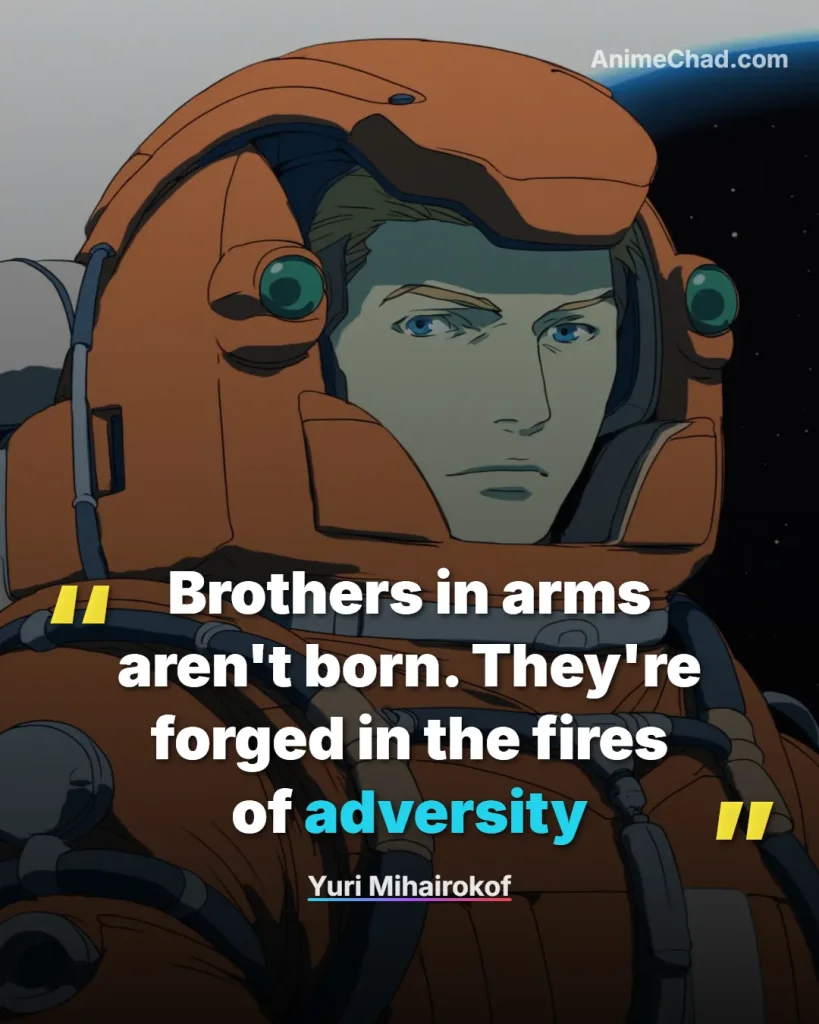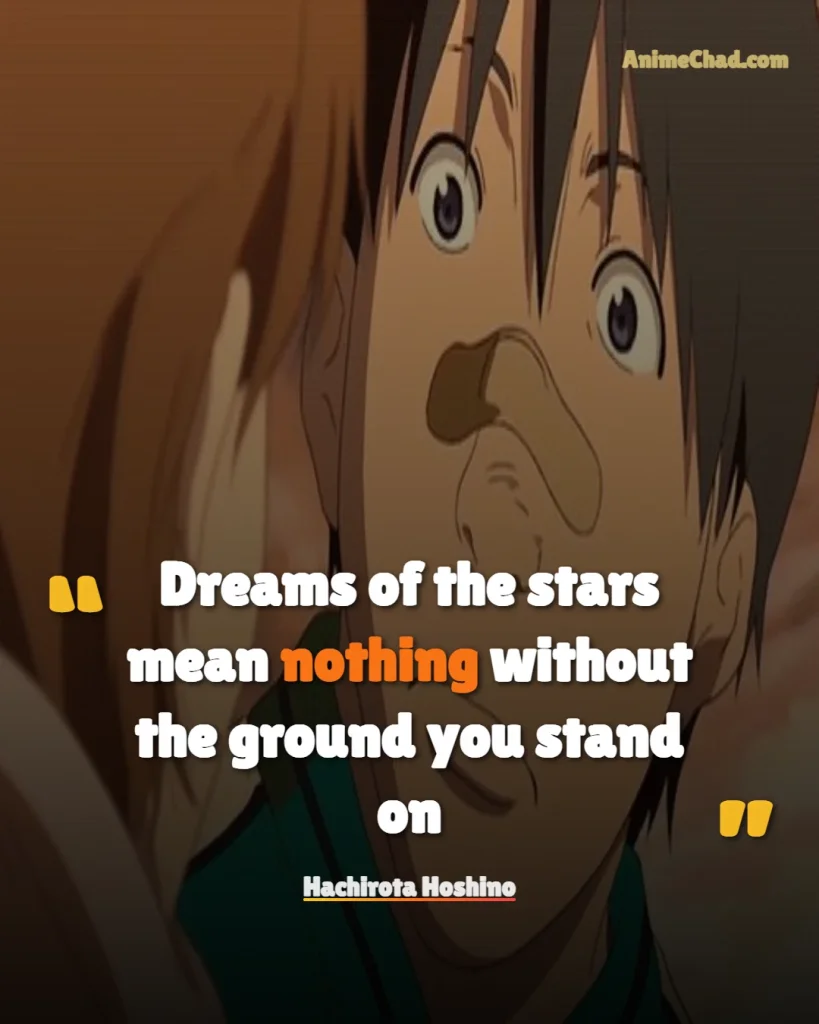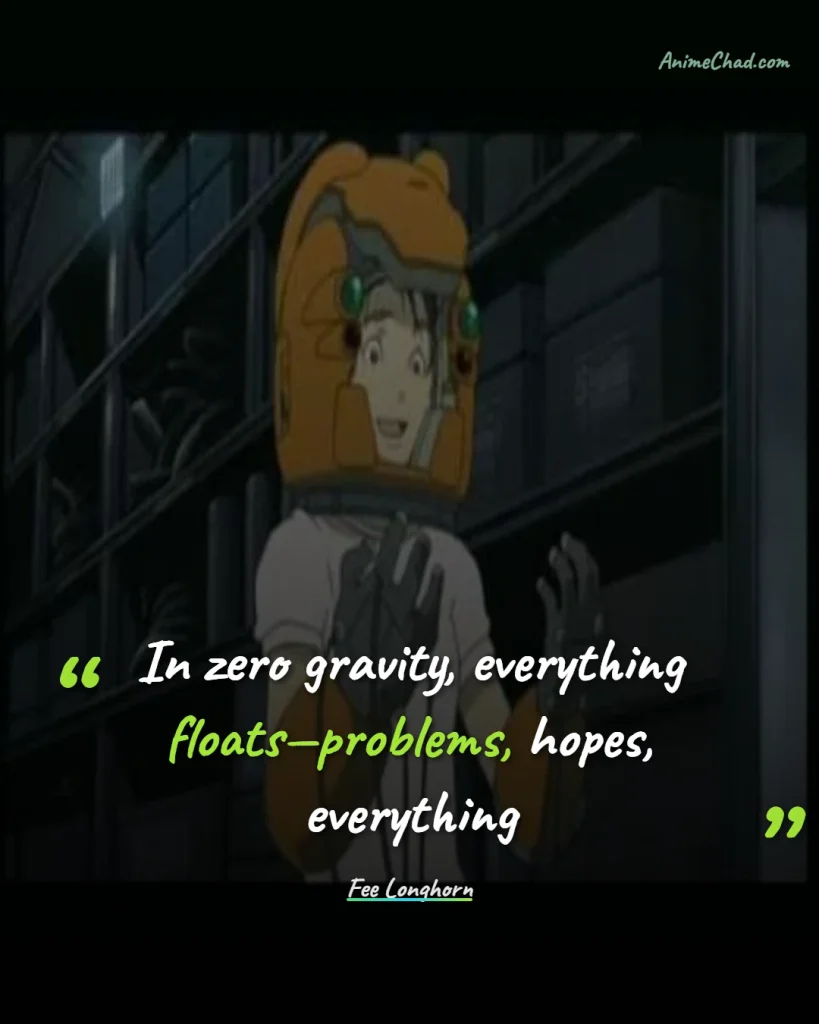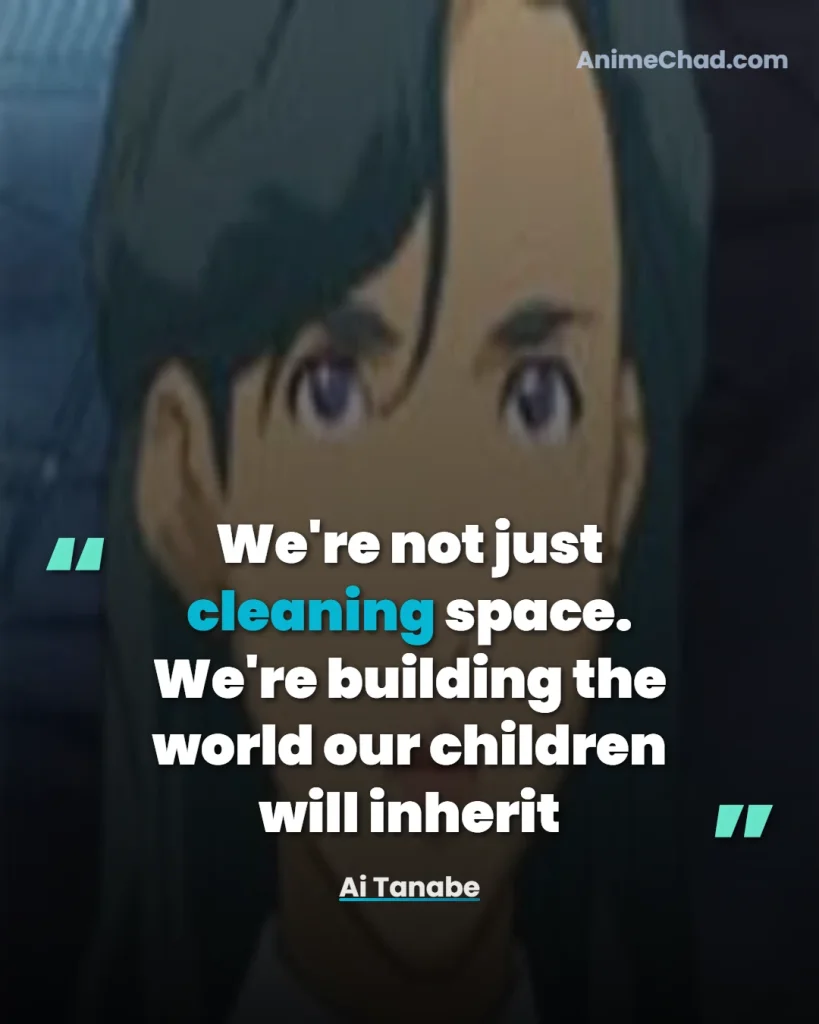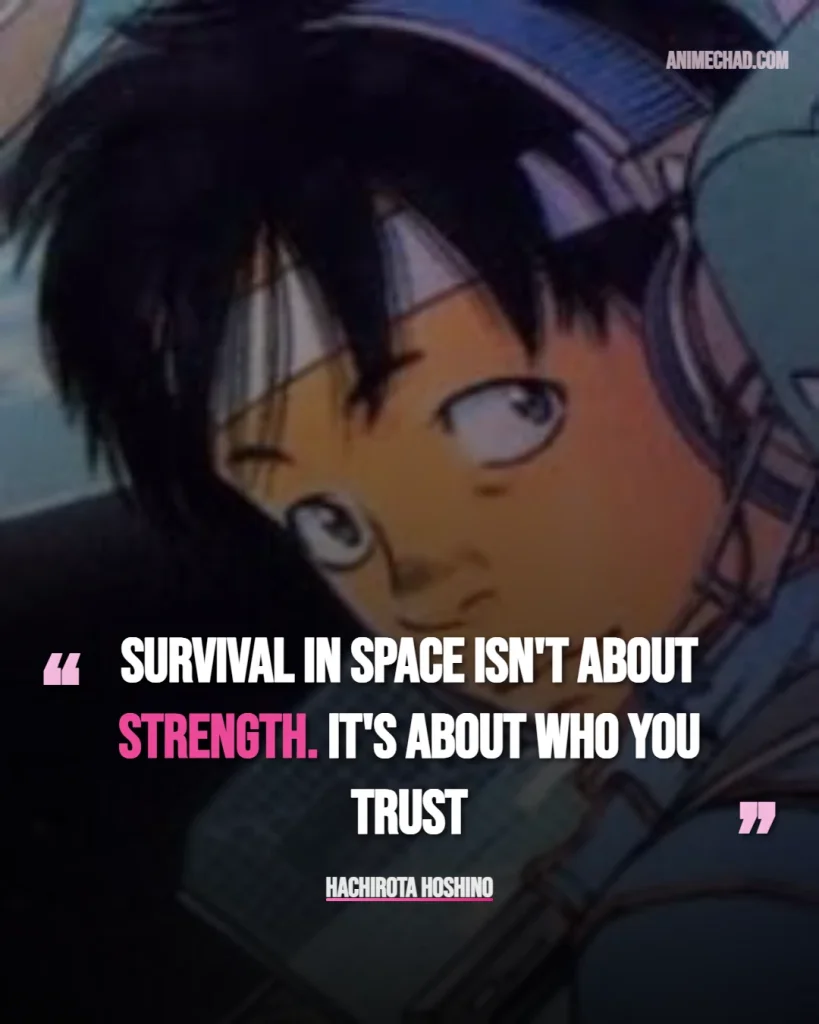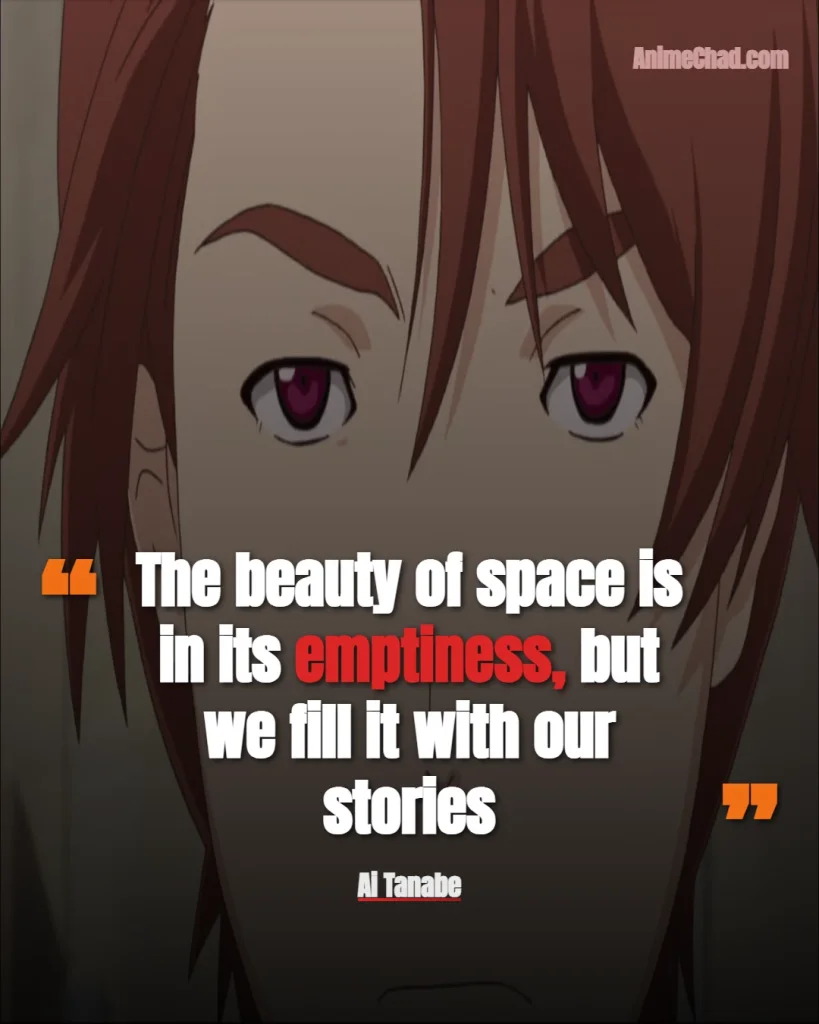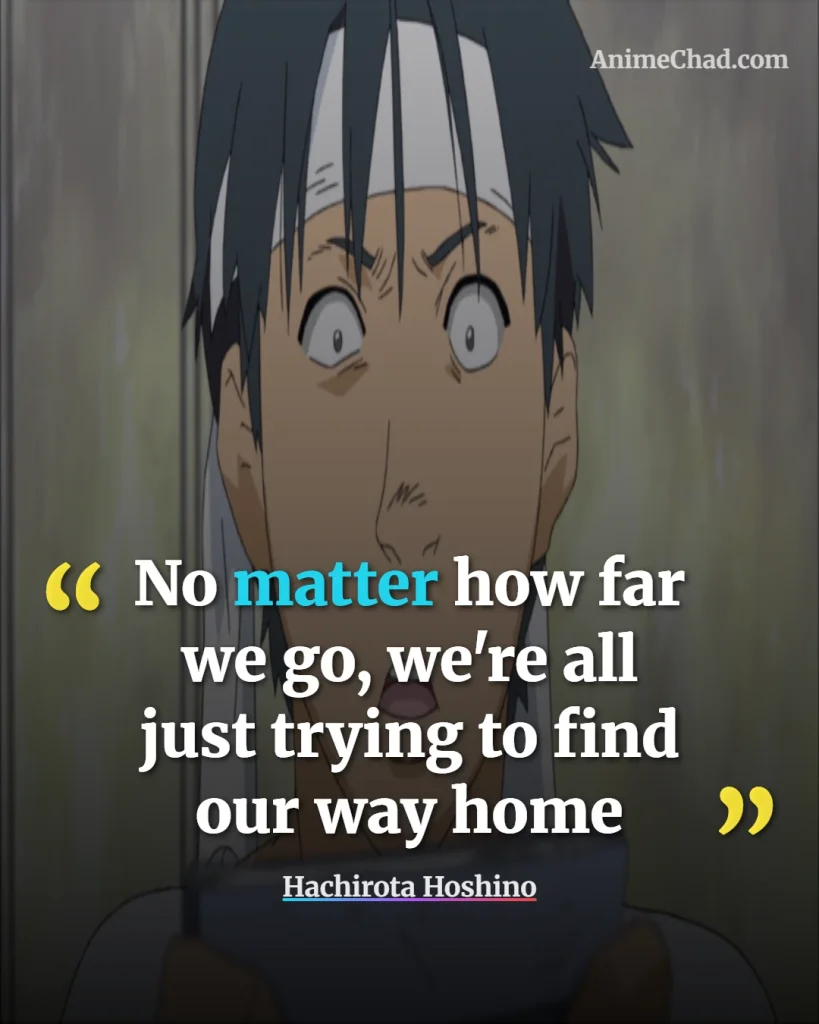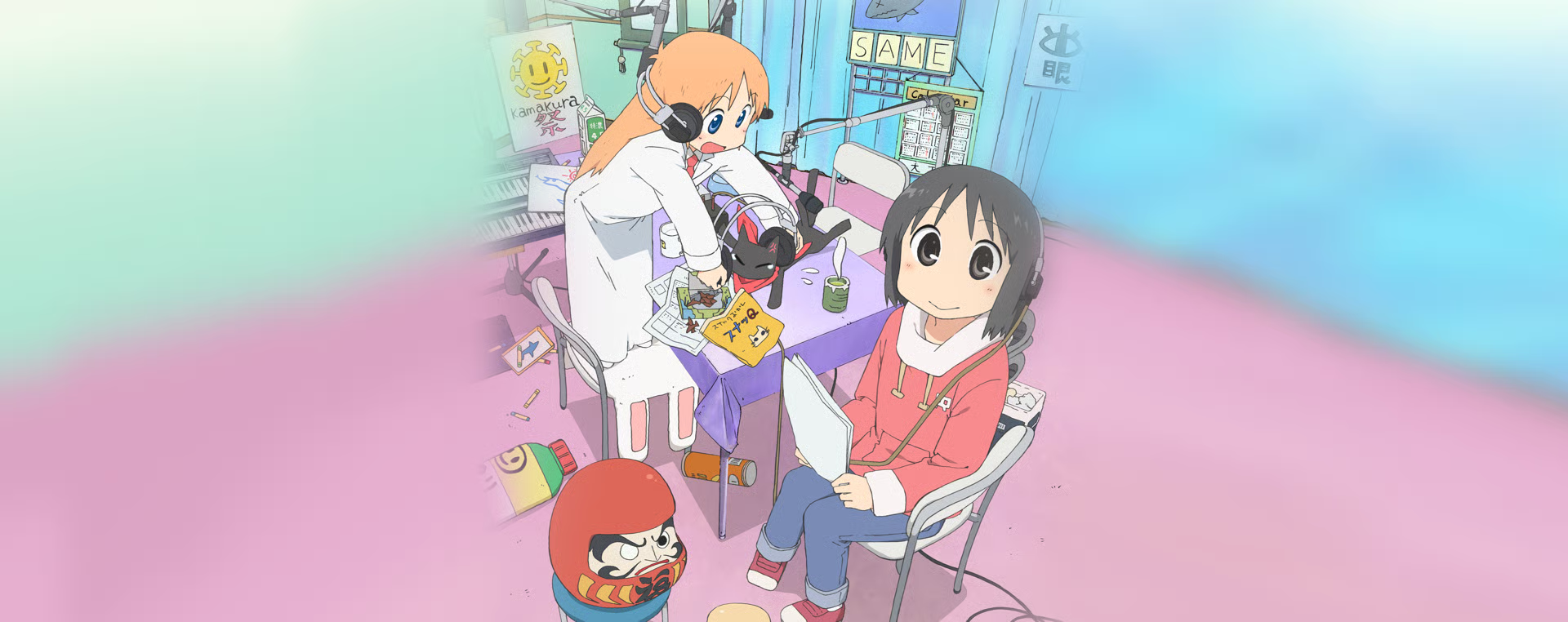Planetes follows Hachirota “Hachimaki” Hoshino and the Debris Section crew as they collect space junk in 2075, portraying the gritty realities of space life. The series delves into themes of human connection, environmental responsibility in orbit, and the balance between personal ambition and collective humanity.
This curated list of 25 quotes highlights character arcs, emotional depth, and these enduring motifs across arcs like early training, personal crises, and Jupiter missions.
From up here, you can’t see any borders or countries or armies. All you can see is Earth
Episode 1 (Outside the Atmosphere)
Ai Tanabe
Tanabe’s wonder at Earth’s unity from space underscores her idealistic drive, contrasting Hachimaki’s cynicism and sparking her growth into the team’s emotional core, tying to themes of global oneness beyond earthly divisions.
If it can bring happiness to the children of Mananga even if only for a brief moment, regardless of the ulterior motives, even a piece of debris like that has some value, don’t you think?
Episode 1 (Outside the Atmosphere)
Fee Longhorn
Fee’s reflection on deorbiting a war memorial plate reveals her pragmatic empathy, highlighting debris work’s unintended positive impact and reinforcing the series’ motif of finding purpose in overlooked tasks amid geopolitical strife.
Something like that can never bring peace. Intention is all you have. But intention doesn’t change a damn thing
Episode 1 (Outside the Atmosphere)
Hachirota Hoshino
Hachimaki’s dismissal of the memorial’s symbolism exposes his initial jaded view of space as a harsh frontier, marking his arc from detached worker to someone confronting ideals, linking to themes of futile ambition versus human intent.
I joined this section because I wanted to help people. Not just collect trash
Episode 2 (At the End of the Earth)
Ai Tanabe
Tanabe’s frustration during her first debris haul shows her evolving from naive recruit to committed advocate, emphasizing personal agency in environmental stewardship and the series’ exploration of space as a shared human endeavor.
Space isn’t just for the elite. It’s for everyone, and we all have to take responsibility for it
Episode 3 (The Radiation Belt of Happiness)
Ai Tanabe
In a peaceful training moment, Tanabe’s declaration reinforces her optimistic worldview, fostering team bonds and highlighting character development toward collective duty, central to the theme of democratizing space exploration.
I’m a genius who can’t love anything but spaceships
Episode 17 (Her Reasons)
Hachirota Hoshino
Hachimaki’s self-deprecating quip during a crisis reveals his deepening obsession with space, a turning point in his arc from routine hauler to ambitious astronaut, echoing themes of isolation versus the pull of human connections.
You think you’re protecting something, but all you’re doing is chasing your own shadow
Episode 10 (Tears in Blue)
Hachirota Hoshino
Amid Yuri’s personal loss, Hachimaki confronts his regrets, showing emotional vulnerability that propels his growth, connecting to broader motifs of grief and the intangible bonds that sustain life in the void.
The stars aren’t just lights in the sky. They’re what we’re reaching for, together
Episode 5 (A Cleansing with Water)
Ai Tanabe
Tanabe’s serene observation during a station repair moment illustrates her inspirational role, nurturing the crew’s unity and underscoring the series’ theme of space as a canvas for shared dreams over individual glory.
Debris isn’t just junk. It’s the scars of our progress, and we have to heal them
Episode 4 (In Her Case)
Fee Longhorn
Fee’s insightful comment on a hazardous collection run highlights her leadership growth, emphasizing environmental accountability and tying to the arc’s focus on the consequences of unchecked space industrialization.
I’ve got no time for regrets. Space doesn’t wait for anyone
Episode 8 (The Labyrinth of Death)
Hachirota Hoshino
In a tense battle-like debris evasion, Hachimaki’s resolve masks his inner turmoil, advancing his development toward embracing vulnerability, reflecting the relentless pace of space life and human resilience.
Happiness isn’t out there in the stars. It’s in the people you choose to keep close
Episode 14 (A 25-Year Dream)
Ai Tanabe
Tanabe’s heartfelt advice to a struggling colleague during a quiet lunar shift deepens her empathetic arc, contrasting Hachimaki’s detachment and reinforcing themes of love as the anchor in an expansive, lonely cosmos.
We can’t let fear of the unknown stop us. That’s what makes us human
Episode 12 (Maelstrom)
Yuri Mihairokof
Yuri’s encouragement during a high-stakes orbital storm reveals his steadfast loyalty, marking growth from silent observer to motivator, linking to the series’ motif of courage amid the perils of space travel.
Ambition is a fire that burns everything if you let it consume you
Episode 20 (Tentative Steps)
Hachirota Hoshino
As Hachimaki prepares for Jupiter training, this warning to himself shows his maturation from reckless dreamer to reflective partner, connecting to themes of balancing personal drive with relational harmony.
Even in the silence of space, voices from Earth remind us why we fight
Episode 6 (The Stars of That Day)
Fee Longhorn
Fee’s reflection on a family call during downtime highlights her emotional depth, evolving her from tough boss to relatable figure, emphasizing the series’ exploration of home ties sustaining frontier existence.
Love isn’t a distraction. It’s the fuel that gets you through the dark
Episode 23 (When the Sand Blooms)
Ai Tanabe
In a peaceful post-mission talk, Tanabe’s words to Hachimaki affirm her role as the story’s heart, showcasing her growth in vulnerability and tying to overarching themes of connection transcending physical distances.
Junk in space is like karma. Ignore it, and it comes back to hit you
Episode 9 (Find the Ball!)
Cheng-Shin Hatanaka
Cheng-Shin’s humorous analogy during a team exercise reveals his budding confidence, advancing his arc from insecure rookie to integral member, underscoring debris as a metaphor for unresolved past actions.
The void doesn’t care about your plans. Adapt, or get left behind
Episode 18 (Debris Section’s Last Day)
Hachirota Hoshino
Facing section closure threats, Hachimaki’s pragmatic stance during a confrontation shows his leadership emergence, linking to themes of adaptability in the face of corporate and cosmic indifference.
Every piece we collect is a step toward a cleaner future for all
Episode 2 (At the End of the Earth)
Ai Tanabe
Tanabe’s determination in a routine haul moment fuels her idealism, highlighting her development as the team’s moral compass and the series’ environmental advocacy for sustainable space habitation.
Brothers in arms aren’t born. They’re forged in the fires of adversity
Episode 15 (In Her Case)
Yuri Mihairokof
Yuri’s bond with Hachimaki during a rescue op deepens their friendship, illustrating his quiet evolution and reinforcing motifs of camaraderie as vital against space’s isolating dangers.
Dreams of the stars mean nothing without the ground you stand on
Episode 21 (Endings Are Always)
Hachirota Hoshino
Hachimaki’s introspective line post-Jupiter selection reflects his reconciliation of ambition with roots, a pivotal growth point tying to the theme of harmonizing personal aspirations with earthly ties.
In zero gravity, everything floats—problems, hopes, everything
Episode 7 (A Fair Trade)
Fee Longhorn
Fee’s lighthearted yet profound remark during a training mishap reveals her wisdom, enhancing her arc as mentor and connecting to the series’ portrayal of space’s equalizing yet chaotic influence on humanity.
We’re not just cleaning space. We’re building the world our children will inherit
Episode 11 (A Hand at the Bottom of the Heart)
Ai Tanabe
Tanabe’s vision shared in a team meeting advances her advocacy, showing maturity in inspiring change and emphasizing legacy as a core theme in the fight against orbital pollution.
Survival in space isn’t about strength. It’s about who you trust
Episode 19 (A Desperate Choice)
Hachirota Hoshino
During a sabotage crisis, Hachimaki’s realization marks his shift from lone wolf to team reliant, deepening his emotional arc and highlighting trust as essential in the series’ high-stakes environment.
The beauty of space is in its emptiness, but we fill it with our stories
Episode 24 (What Someone Left Behind)
Ai Tanabe
In a reflective moment overlooking debris fields, Tanabe’s words encapsulate her journey, fostering closure on themes of narrative and presence combating the void’s anonymity.
No matter how far we go, we’re all just trying to find our way home
Episode 26 (And the Days We Chance Upon)
Hachirota Hoshino
Hachimaki’s final confession to Tanabe during their spacewalk concludes his arc from aimless hauler to devoted explorer, embodying the series’ ultimate theme of home as people, not places, in the vastness.

